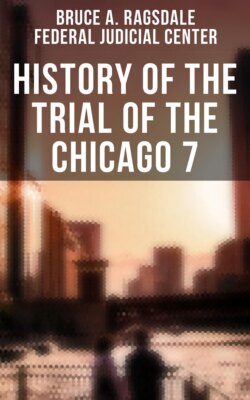Читать книгу History of the Trial of the Chicago 7 - Bruce A. Ragsdale - Страница 30
На сайте Литреса книга снята с продажи.
4. Was the Anti-Riot Act of 1968 unconstitutional?
ОглавлениеTable of Contents
No, the U.S. Court of Appeals for the Seventh Circuit, in a 2-1 decision, decided that the act did not violate the Constitution.
In their appeal, the defendants challenged the constitutionality of the Anti-Riot Act under which they had been convicted. Judges Thomas Fairchild and Walter Cummings found that the act was not so vague or so broad as to be unconstitutional, although they found that the case raised difficult questions. The judges were satisfied that the act required a sufficiently close relationship between speech and action that demonstrated intent to incite a riot. The act’s requirement of “an overt act” in support of inciting a riot was enough to prevent the act from suppressing or “chilling” speech protected by the Constitution.
Judge Wilbur Pell dissented from the majority opinion, and wrote that the Anti-Riot Act was an unconstitutional restriction on free speech. Pell, a recent Nixon appointee, found that the act did not distinguish between speech that advocated violence and speech that was directly related to the incitement of violence. The advocacy of “an idea or expression of belief” could not be limited under the Constitution.
In the fall of 1968, lawyers for the National Mobilization Committee had challenged the constitutionality of the Anti-Riot Act in their suit asking for a court order to halt the grand jury inquiry into the demonstrations. On November 1, 1968, Judge Abraham Marovitz of the district court for the Northern District of Illinois dismissed the suit, and the U.S. Court of Appeals for the Seventh Circuit agreed that the challenge to the statute did not raise sufficient constitutional questions.
